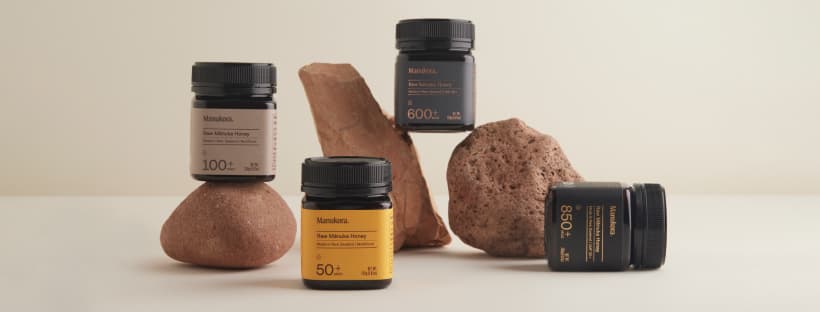Caffeine is the most commonly used stimulant for the central nervous system. Knowing when to drink caffeine can help you get its benefits while avoiding unwanted side effects like sleeplessness. This article will explain the best times to consume caffeine for mental alertness and physical performance, how long it stays in your system, and tips for safe consumption.
Key Takeaways
- Caffeine can boost brain function and physical performance but can also cause jitters if overused.
- The best time to drink caffeine for mental alertness is usually in the morning or early afternoon.
- For physical activities, small amounts of caffeine taken at the start of fatigue are more effective.
- Caffeine can stay in your system for 2 to 12 hours, so avoid it at least eight hours before bed.
- Different people have different sensitivities to caffeine, so it's important to find what works best for you.
Understanding How Caffeine Affects the Body
Immediate Effects on the Brain
Caffeine is a central nervous system stimulant that starts working within minutes of consumption. It blocks adenosine receptors, which helps reduce feelings of tiredness. This leads to increased alertness and concentration. However, it can also cause jitteriness and anxiety in some people.
Impact on Physical Performance
Caffeine can enhance physical performance by increasing adrenaline levels. This hormone prepares the body for physical exertion. Athletes often use caffeine to improve endurance and strength. However, too much caffeine can lead to dehydration and increased heart rate.
Long-term Health Implications
Long-term caffeine consumption has both positive and negative effects. On the positive side, it may reduce the risk of certain diseases like Parkinson's and Alzheimer's. On the downside, excessive intake can lead to dependency and other health issues like high blood pressure. It's important to consume caffeine in moderation to reap its benefits while minimizing risks.
Optimal Times to Consume Caffeine for Mental Alertness
Morning Consumption
Starting your day with a cup of coffee can be a great way to boost your mental alertness. The best time for your first cup is between 9:30 a.m. and 11 a.m. This is when your body's cortisol levels start to drop, making caffeine more effective.
Midday Boost
If you find your energy dipping after lunch, a midday caffeine boost can help. A small cup of coffee or tea around 1 p.m. to 2 p.m. can keep you alert without interfering with your nighttime sleep.
Avoiding Afternoon Slumps
To avoid the dreaded afternoon slump, consider a light caffeine intake around 3 p.m. This can help you stay focused and productive for the rest of the day. However, be cautious not to consume too much, as it might affect your sleep later.
Timing Caffeine for Physical Performance
Pre-Workout Timing
Consuming caffeine before a workout can help you feel more energetic and less tired. A small dose of caffeine, like a cup of coffee, can improve endurance and delay fatigue. It's best to take caffeine about 30-60 minutes before you start exercising to get the most benefit.
During Exercise
Some athletes find it helpful to take caffeine during their workout, especially for long activities like marathons or cycling races. This can help keep energy levels up and reduce the feeling of tiredness. However, it's important to test this strategy during training to see how your body reacts.
Post-Workout Considerations
After exercising, it's usually better to avoid caffeine. Your body needs time to recover, and caffeine can interfere with sleep and hydration. Instead, focus on drinking water and eating a balanced meal to help your muscles recover.
How Long Does Caffeine Stay in Your System?
Factors Influencing Caffeine Metabolism
Caffeine is mainly broken down in the liver, but how long it stays in your system can vary. Factors like smoking can speed up this process, while pregnancy and certain medications can slow it down. For example, during the third trimester of pregnancy, caffeine can stay in the body for up to 15 hours.
Average Duration of Effects
Generally, caffeine is fully absorbed within an hour, and its effects can last from four to six hours. However, it can remain in your blood for anywhere from 1.5 to 9.5 hours. Half of the caffeine is usually cleared from your system in about 4 to 6 hours.
Individual Sensitivity
Everyone's body reacts differently to caffeine. Some people may feel jittery after just one cup of coffee, while others can drink several cups without any issues. Individual sensitivity can depend on factors like age, weight, and overall health.
Understanding how long caffeine stays in your system can help you make better choices about when to consume it, especially if you're sensitive to its effects.
Guidelines for Safe Caffeine Consumption
Recommended Daily Limits
Understanding how much caffeine is safe to consume daily is crucial. Most health experts recommend that adults limit their caffeine intake to 400 milligrams per day. This is roughly equivalent to four 8-ounce cups of coffee. However, individual tolerance can vary, so it's important to listen to your body.
| Beverage | Average Caffeine Content |
|---|---|
| 12-ounce can of soda | 30–40 milligrams |
| 8-ounce cup of green or black tea | 30–50 milligrams |
| 8-ounce cup of coffee | 80–100 milligrams |
| 1 ounce of chocolate | 12 milligrams |
| 8-fluid-ounce energy drink | 40–250 milligrams |
Signs of Overconsumption
Consuming too much caffeine can lead to several unpleasant symptoms. These include:
- Jitters or shaking
- Increased heart rate
- Anxiety
- Trouble sleeping
- Headaches
If you experience any of these symptoms, it may be a sign that you need to cut back on your caffeine intake.
It's important to monitor how your body reacts to caffeine and adjust your consumption accordingly.
When to Cut Off Caffeine Intake
To avoid disrupting your sleep, it's best to stop consuming caffeine at least six hours before bedtime. For example, if you go to bed at 10 PM, try to have your last caffeinated beverage by 4 PM. This can help ensure that the stimulating effects of caffeine do not interfere with your ability to fall asleep and stay asleep.
Caffeine and Sleep: Finding the Balance
Effects on Sleep Quality
Caffeine can mess with your body's natural sleep-wake cycle. This makes it harder to fall asleep and stay asleep. It can also lower the quality of your sleep and reduce deep sleep. If you have trouble sleeping, you might want to cut back on caffeine later in the day.
Ideal Cut-off Times
For most people, it's best to stop drinking caffeine at least six hours before bedtime. But if you're very sensitive to caffeine, you might need to stop even earlier. If you have sleep problems, talk to your doctor about your habits and diet.
Alternatives to Caffeine for Evening Energy
If you need a boost in the evening, try foods and drinks with less caffeine, like green tea or dark chocolate. These options are less likely to mess with your sleep.
Finding the right balance between enjoying caffeine and getting good sleep is key. Test what works best for you and adjust as needed.
Special Considerations for Different Populations
Athletes
Athletes often use caffeine to boost their performance. Caffeine can enhance endurance and reduce perceived effort during exercise. However, it's important to time caffeine intake properly to avoid negative side effects like jitters or digestive issues. Athletes should also be aware of the caffeine content in various supplements and energy drinks.
Pregnant Women
Pregnant women need to be cautious with caffeine. High caffeine intake has been linked to risks such as low birth weight and preterm birth. It's generally recommended that pregnant women limit their caffeine consumption to 200 milligrams per day, which is about one 12-ounce cup of coffee.
Individuals with Anxiety Disorders
Caffeine can exacerbate symptoms of anxiety, such as nervousness and rapid heartbeat. People with anxiety disorders should monitor their caffeine intake closely and consider reducing or eliminating it if they notice increased anxiety symptoms. Alternatives like herbal teas can provide a soothing effect without the stimulating properties of caffeine.
It's crucial for individuals with specific health conditions to consult their healthcare provider about their caffeine consumption to ensure it aligns with their health needs.
Conclusion
Understanding the best times to consume caffeine can help you harness its benefits while avoiding unwanted side effects. Whether you're looking to boost your morning alertness, enhance your workout performance, or simply avoid sleepless nights, timing your caffeine intake is key. Remember, everyone's body reacts differently to caffeine, so it's important to pay attention to how it affects you personally. By being mindful of when and how much caffeine you consume, you can enjoy its perks without the pitfalls. Stay informed and make choices that best suit your lifestyle and needs.
Frequently Asked Questions
What are the immediate effects of caffeine on the brain?
Caffeine quickly makes you feel more awake and focused. It blocks a chemical in the brain that makes you feel tired.
When is the best time to drink caffeine for mental alertness?
Morning is usually best for most people. A midday boost can also help, but try to avoid caffeine late in the day to prevent sleep problems.
How does caffeine affect physical performance?
Caffeine can give you more energy and improve your performance, especially if you take it before you start to feel tired.
How long does caffeine stay in your system?
Caffeine can stay in your body for 2 to 12 hours. How long it lasts depends on your body and how sensitive you are to caffeine.
What are the signs of having too much caffeine?
Too much caffeine can make you feel jittery, anxious, or give you trouble sleeping. It can also make your heart beat faster.
When should I stop drinking caffeine to avoid sleep problems?
It's a good idea to stop drinking caffeine at least 6 to 8 hours before you plan to go to bed. This helps make sure it doesn't keep you awake.























